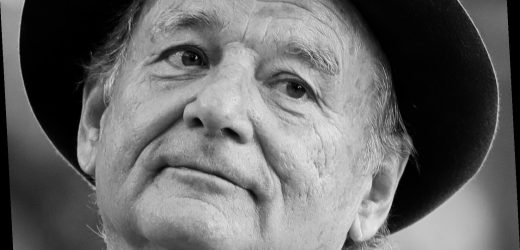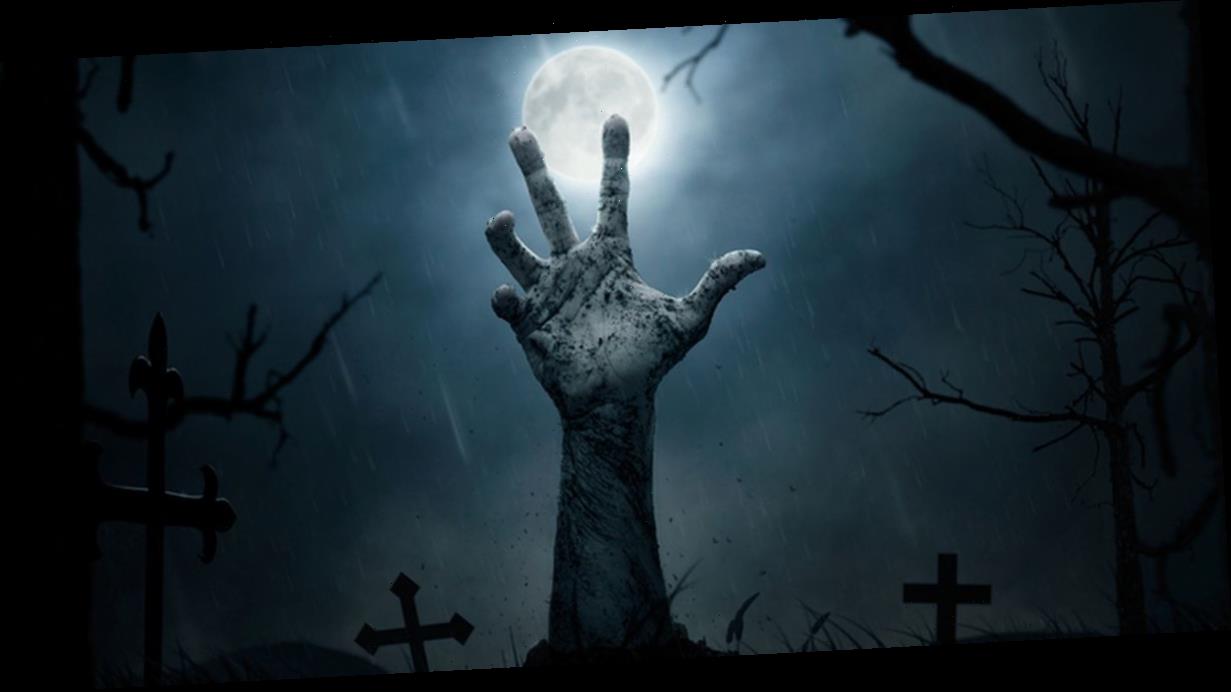Arguably one of the biggest stars to come out of the early years of Saturday Night Live is Bill Murray, who transitioned from TV stardom to Blockbuster film stardom (with help of director and one-time friend, Harold Ramis) to indie darling, courtesy of auteurs like Wes Anderson and Noah Baumbach.
And although Murray is famous for breathing life into characters like Dr. Peter Venkman from Ghostbusters and Phil in Groundhog Day, perhaps the biggest character is Murray himself. Over the last 15 years or so, Murray has become known for his off-screen antics just as much as onscreen ones. Crashing kickball games, karaoke sessions, and bachelor parties — just another day in the life of Bill Murray (via Mental Floss).
Despite all these attention-grabbing shenanigans, Murray has a darker side to him, at one point earning himself the nickname, “The Murricane,” courtesy of his SNL co-star, Dan Aykroyd (via Omaha World-Herald). Murray’s mood swings caused him the ire of former co-stars Chevy Chase (via Far Out Magazine), Richard Dreyfuss (via The Mercury News), Lucy Liu (via Entertainment Weekly), amongst others, and even with former close friend and collaborator, director Harold Ramis (via Cinema Blend).
Improvisational beginnings
Like many a comedy legend to come before him (Mike Nichols and Elaine May, for example), and even after (Tina Fey, Rachel Dratch, and Chris Farley, to name a few), Murray got his start in Chicago at the Second City Theater, studying under the notorious Del Close (via Esquire).
Murray, an Illinois native (via Omaha World-Herald), started at Chicago’s Second City in the early ’70s (via DNAinfo), alongside future Stripes castmate, John Candy (via Minnesota Spokesman-Recorder).
Murray didn’t have particularly auspicious beginnings. “I just saw myself as just making a living,” he told the Minnesota Spokesman-Recorder in 2016. “We were funny but we didn’t consider ourselves actors.”
Over the years, Murray grew close with … Close. When Close was succumbing to emphysema in 1999, he threw “one last party” for himself, and of course, Murray was in attendance — he even picked up the tab (via Chicago Reader).
“He taught lots and lots of people very effectively,” Murray once recalled to Esquire. He taught people to commit. Like: ‘Don’t walk out there with one hand in your pocket unless there’s somethin’ in there you’re going to bring out.'” And while there are many who had different experiences with Close (via Jezebel), he obviously had an impact on Murray, who told Esquire, “He was incredibly gracious to your talent and always tried to further it. He got people to perform beyond their expectations.”
Proving himself at SNL
In 1976, then 26-year-old Murray (via Open Culture) got his big break when he joined the cast of the still-new Saturday Night Live, then only in its second season. Murray took over when comedian and the show’s breakout star, Chevy Chase (via The Washington Post), left the cast.
Like most newcomers to SNL, during Murray’s first outings on the show, he was mostly relegated to small, bit roles, without really much to sink his teeth into. So, Murray tried something that was still novel for the show at the time: He directly appealed to the audience — by apologizing.
“You see, I’m a little bit concerned,” he says in the sketch (via YouTube). “I don’t think I’m making it on the show. I’m a funny guy, but I haven’t been so funny on the show. … It’s not the material. It’s me.” He then humbly appeals to the audience and asks them for their “support” and if they could see it in their hearts to laugh whenever it is he says something.
It was a gambit that paid off, and soon Murray would go on to create some of his most memorable characters (via Rare), including Nick the Lounge Singer, one of “The Nerds,” and his take on Family Feud host Richard Dawson (via Toledo Blade). In fact, some even argue that Chase leaving SNL and Murray going on to flourish there provided the model that would sustain the show over decades to come (via Orlando Sentinel).
He has a unique way of accepting roles
When Murray departed SNL in 1980 with the rest of the original cast -—legends like John Belushi, Dan Aykroyd, Gilda Radner, Jane Curtin, and more — he was more than primed to make the jump to the big screen. However, at some point, Murray got sick of the phone ringing — literally.
“I had a house phone, and it would just ring and ring,” Murray said back in 2019. “Finally, I’d pick up the phone and I’d say, ‘Who in the fuck is calling me and letting my phone ring like that?’ The agent would say, ‘Oh, I’m sorry, I’m calling for so-and-so.’ I’d say, ‘Look, you can’t do this. This is my house. If I don’t answer the phone, don’t do that because you’re making me not like you'” (via IndieWire).
So Murray did what likely no actor has done before — and probably no actor after him will do: He purchased an 800 number and screens offers for acting roles through that.
Naturally, because of this process, and, by Murray’s own admission, his lack of discipline in checking his messages, he’s missed out on a number of potentially huge roles, in films that range the gamut from The People vs. Larry Flynt to Monsters, Inc. (via Consequence of Sound).
It’s also led to some confusion. When asked why Murray chose to voice the titular role in the 2004 animated Garfield film, it was because the actor mistook the movie’s writer, Joel Cohen for Joel Coen of Coen Brothers fame (via Business Insider).
Brotherly love
Murray has a long history of collaborating with his brothers. In 1980, Murray starred in Caddyshack, one of his most famous films — that just so happened to be written by his brother and fellow comedian, Brain Doyle Murray, who drew his inspiration for the film (via mbcshack.com) based on the summers the six brothers spent working as caddies at a nearby country club.
Some years later, their brother Andy and his friend, Mac Haskell, had an idea: What if they took the Caddyshack brand and expanded it into a restaurant? And with that the Caddyshack restaurant was born in 2001, in St. Augustine, Florida, appropriately located in the same city as the World Golf Hall of Fame.
Sixteen years later, the Murray brothers were able to expand their Caddyshack restaurant to the Crowne Plaza Hotel in Rosemont, Illinois (via Food & Wine). Murray’s also a part-owner of Rutledge Cab Co. in Charleston, South Carolina, where he has one of his residences and appears to spend a fair amount of time (via Explore Charleston).
And it appears as though a thing for restaurants runs in the family: His son, Homer, co-owns the restaurant 21 Greenpoint in Greenpoint, Brooklyn (formerly known as River Styx). Murray even did some special guest bartending in honor of the restaurant’s reopening (via The New York Times).
He's been divorced
It’s no secret that Murray has a temper — after all, it’s what led to the dissolution of his relationship with friend and Groundhog Day director, Harold Ramis.
“At times, Bill was just irrationally mean and unavailable; he was constantly late on set,” Ramis recalled. “What I’d want to say to him is just what we tell our children: ‘You don’t have to throw tantrums to get what you want. Just say what you want'” (via The Guardian).
Sadly, Murray’s second wife, Jennifer Butler Murray, to whom the actor was married from 1997 to 2008, was on the receiving end of this anger (via Jezebel).
In her divorce filing, Butler alleges that Murray’s “adultery, addiction to marijuana and alcohol, abusive behavior, physical abuse, sexual addictions and frequent abandonment” caused her to live separately from Murray, and that in the midst of a 2007 altercation, Murray told Butler she was “lucky he didn’t kill her.” In addition to filing for divorce, Butler also sought a restraining order to protect her from the actor. For his part, Murray denies the abuse. Butler later withdrew the allegations.
However, Murray’s image has changed, and many see him now as the pinnacle of relaxation. Commenting on this, Murray said, “My relaxation is a complete collapse of a human being. There’s certainly no backbone. It’s a dissolution of humanity is what it is. I’m nothing but compost most of the time.”
If you or someone you know is dealing with domestic abuse, you can call the National Domestic Violence Hotline at 1−800−799−7233 or TTY 1−800−787−3224. You can also find more information, resources, and support at www.thehotline.org.
Source: Read Full Article








